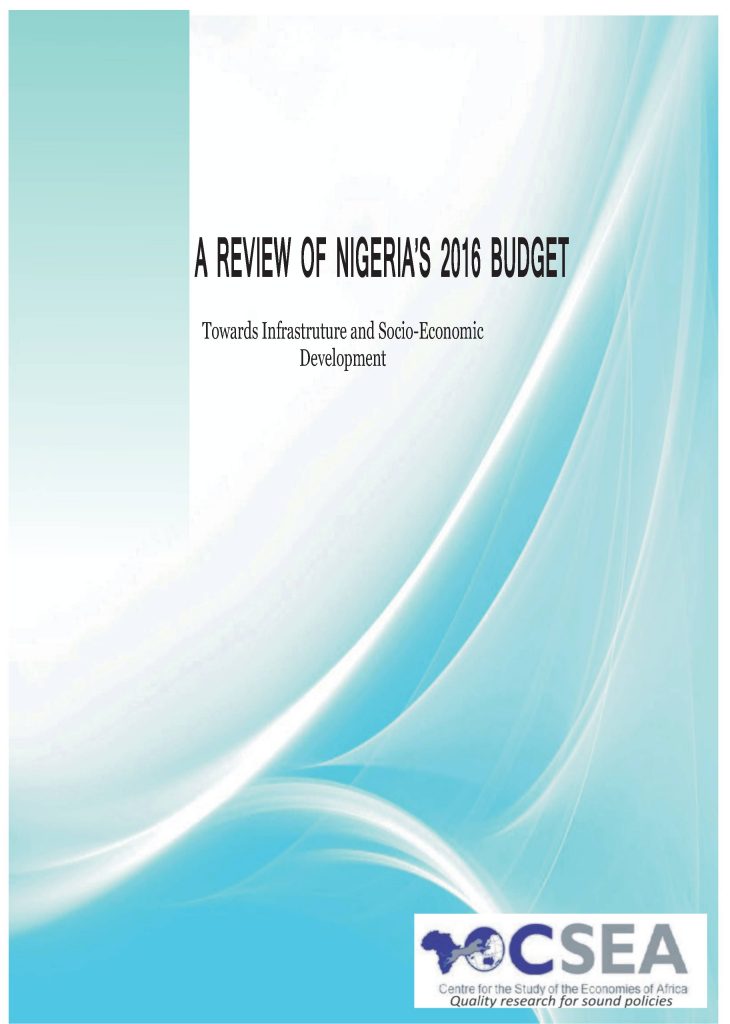Journal Articles and Book Chapters

August 2, 2016
A Review Of Nigerias 2016 Budget
This study
reviews and assesses the 2016
budget of the Federal Republic of Nigeria in line with IMFsbudget assessment indicators, namely: comprehensiveness, transparency, and
realism. The assessment is based on
clear understanding of the present
administrations objectives, which are: to achieve socio-economic
and infrastructural development, to diversify the Nigerian economy, and to
achieve improved security of lives and properties.
Related
Nigeria Economic Update (Issue 9)
The naira depreciated by 8.2 percent from
N305/$ on February 5th, to N330/ $ on February 12th 20166. The apex body identified the
increased domestic demand for forex to pay for foreign medical treatments and
schools fees (15 percent of total demand) 7 as the main drivers. As
a result, the apex bank is considering to discontinue the provision of forex for
payment of medical bills and school fees abroad and to re-channel the forex
towards the manufacturing sector of the economy. With the continuous
depreciation of the naira, and the CBNs resistance from calls to devalue the
currency, the options for alternatives measures seem to be diminishing.
Nigeria Economic Update (Issue 44)
Recently released Nigerias
petroleum imports data, show a significant decline in the quantity and value of
petroleum import products (PMS, AGO and NHK) between 2015 and 2016.
Specifically, value of imports significantly declined year-on-year (January to
April) by 30.4 percent to N571 billion in 2016. The huge decline in
the import of (refined) petroleum products likely reflects the lower
(unrefined) crude oil production/exports. Furthermore, it is likely that the
import of petroleum products could decline in subsequent years; however, this
is dependent on the prospects of the three domestic refineriesbeing refurbished.
